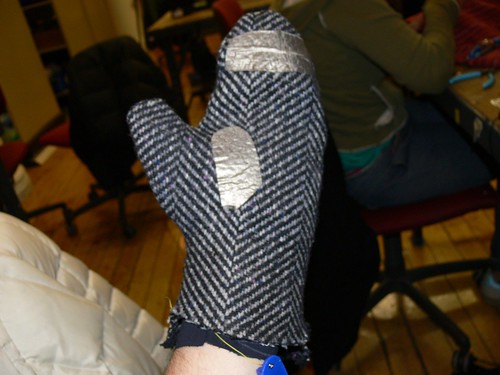Following up on last weeks apps for uploading images from cameraphones, Merkitys is an open source image uploading application that works with Flickr. It attempts to providing ‘meaning’ or context to your images by tagging them with location data. It can do this in several ways. First of all, you can type your current location. More conveniently, Merkitys keeps track of cell tower locations and lets you describe them (so when I’m at home I can set name that cell tower ‘home’, and note that it is in brooklyn, ny. Lastly, Merkitys will interact with a bluetooth gps receiver to tag your images with even more specific geosat data.
It also interacts with your phone’s calendar data, so if I take a picture during class, it will automatically be tagged as occuring during that event. It even will scan the bluetooth network and tag based on the bluetooth devices you are surrounded by. Over time this could provide some intersting data…
It’s a fascinating concept, and one that I think will make location-based apps more useful — using the intelligence of the platform to contextualize the events of your life.
Merkitys is for nokia series60 phones…



